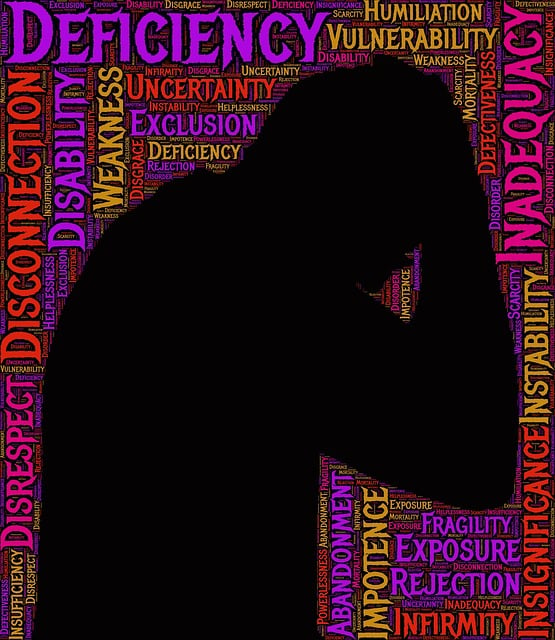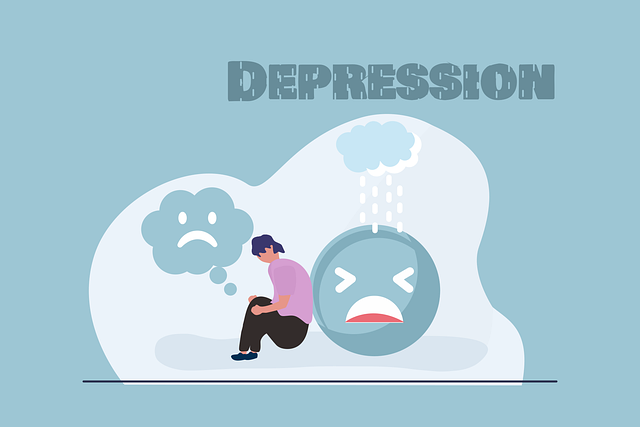Panic disorder and anxiety attacks among elders significantly impact daily life, leading to isolation and reduced quality of life. Effective therapy requires healthcare providers with cultural competency training to identify symptoms through comprehensive assessments. Mental health education programs empower seniors with coping strategies, stress management, and mindfulness practices tailored to their needs. Tailored curriculum design includes practical mechanisms like mindfulness exercises and social skills training for enhanced well-being. Compassion cultivation practices (CCP) reduce anxiety symptoms and emotional resilience, while burnout prevention for providers ensures long-term program effectiveness. Community engagement, cultural sensitivity, and self-care practices foster a safe environment for elders to navigate their mental health journeys with personalized therapy for panic disorder and anxiety attacks.
Mental health education programs play a pivotal role in addressing prevalent issues like panic disorder and anxiety attacks among the elderly. This article delves into the comprehensive design of such programs, focusing on strategies tailored to this demographic. We explore the impact of these disorders, highlighting the need for targeted interventions. Through evidence-based therapies and community engagement, we aim to enhance coping mechanisms, fostering improved mental well-being for our aging population. Key topics include curriculum design, incorporating effective treatments, and building supportive systems for sustained resilience in elders suffering from panic disorder and anxiety attacks.
- Understanding Panic Disorder and Anxiety Attacks in Elders: Symptoms and Impact
- The Role of Mental Health Education Programs for Elderly Populations
- Designing Effective Curriculum: Strategies for Teaching Coping Mechanisms
- Incorporating Evidence-Based Therapies into the Program Structure
- Community Engagement and Support Systems for Sustained Well-being
Understanding Panic Disorder and Anxiety Attacks in Elders: Symptoms and Impact

Understanding panic disorder and anxiety attacks among elders is essential for effective therapy as these conditions can significantly impact their daily lives. Symptoms may include sudden and intense fear, rapid heartbeat, sweating, trembling, shortness of breath, and a feeling of impending doom. These episodes can recur unexpectedly, causing elderly individuals to avoid certain places or situations, leading to social isolation and decreased quality of life.
The impact extends beyond the individual, affecting their families and caregivers as well. Elders might struggle with memory issues, cognitive impairment, and changes in sleep patterns due to chronic anxiety. Healthcare providers play a crucial role in identifying these issues through comprehensive assessments and cultural competency training. Incorporating resilience-building techniques and social skills training within therapy can empower elders to manage their symptoms, enhance their coping mechanisms, and improve overall well-being.
The Role of Mental Health Education Programs for Elderly Populations

Mental health education programs play a pivotal role in addressing the unique challenges faced by elderly populations. As our society ages, it’s crucial to ensure that older adults have access to resources and knowledge that promote their mental well-being. These programs are designed to educate and empower seniors, helping them understand and manage common mental health issues that can arise with aging. One of the significant concerns for this demographic is panic disorder and anxiety attacks, which can significantly impact their quality of life. Through interactive sessions, workshops, and support groups, elders can learn effective coping strategies to tackle these conditions head-on.
Incorporating stress management techniques, positive thinking exercises, and mindfulness practices into mental health education is essential. These tools not only help in managing anxiety but also promote overall resilience. Moreover, training healthcare providers on cultural competency ensures that the needs of diverse elderly populations are met with sensitivity and understanding. Organizations offering such workshops contribute to fostering a supportive environment where elders can openly discuss their struggles and find solutions tailored to their specific requirements, ultimately enhancing their mental health and well-being.
Designing Effective Curriculum: Strategies for Teaching Coping Mechanisms

Effective curriculum design is a cornerstone for mental health education programs, especially when addressing common issues like panic disorder and anxiety attacks among elders. One key strategy involves teaching practical coping mechanisms tailored to the unique needs of this demographic. This can include techniques such as mindfulness exercises, deep breathing strategies, and progressive muscle relaxation, which have been proven effective in reducing symptoms of anxiety.
Incorporating interactive activities and group discussions facilitates a supportive learning environment. Educators can model these coping skills and encourage participants to share their experiences, fostering peer support. Additionally, integrating social skills training and trauma support services within the curriculum empowers elders with tools to navigate interpersonal challenges and process past traumas, enhancing overall mental well-being.
Incorporating Evidence-Based Therapies into the Program Structure

Incorporating evidence-based therapies is a cornerstone of effective Mental Health Education Program design, especially when addressing specific mental health challenges like panic disorder and anxiety attacks among elders. One such therapeutic approach gaining prominence is Compassion Cultivation Practices (CCP). CCP has shown promise in reducing symptoms of anxiety and fostering emotional resilience in older adults. By integrating these practices into program curriculum, participants can learn to cultivate self-compassion, which can help manage the overwhelming feelings associated with panic disorders.
Additionally, Burnout Prevention Strategies for Healthcare Providers should be incorporated to ensure that those facilitating mental health programs remain resilient and effective over time. This is particularly crucial as caregivers and healthcare providers play a significant role in supporting elders’ mental well-being. Tailoring Mental Health Education Programs Design to include evidence-based therapies like CCP alongside burnout prevention strategies ensures a holistic, sustainable approach to elder mental health care.
Community Engagement and Support Systems for Sustained Well-being

Community engagement plays a pivotal role in designing mental health education programs aimed at fostering well-being. By involving local communities and integrating support systems, especially for vulnerable groups like elders suffering from panic disorder and anxiety attacks, we can ensure sustainable positive outcomes. These initiatives should focus on building resilience and promoting self-care practices that cater to the unique needs of diverse populations.
Incorporating compassion cultivation practices within these programs has proven effective in cultivating empathy and reducing stress, thereby enhancing overall mental health. Furthermore, cultural sensitivity in mental healthcare practice is essential for establishing trust and ensuring inclusive support. By addressing these aspects, we can create a safe and supportive environment, enabling individuals to navigate their mental health journeys with confidence-boosting strategies tailored to their specific circumstances.
Mental health education programs play a pivotal role in empowering elderly individuals to manage panic disorder and anxiety attacks. By combining an evidence-based curriculum, community engagement, and access to support systems, we can significantly enhance the well-being of our aging population. Incorporating strategies like teaching coping mechanisms and integrating effective therapies ensures that elders receive comprehensive care tailored to their unique needs. This holistic approach not only improves symptoms but also fosters a sense of control, resilience, and overall quality of life for those dealing with panic disorder and anxiety attacks.










